When it comes to entrepreneurship culture, Kerala is a ‘spoiled child’
By Prof. Keyoor Purani
Courtesy: FutureKerala, July 29,2017, p6 https://futurekerala.in
I was reading the Kerala Chief Minister’s interview, focused on the first year performance of his government, in the recent issue of India Today. One of the initial questions put to the CM (which was also highlighted in large print) by the interviewer struck me – ‘Kerala is investment unfriendly state, what has your government done’? Now, you may read the CM’s response in that interview, but it is a fact that large investments in business have eluded the state. No doubt, Kerala has made a mark internationally as a tourist destination but when it comes to business, outside investors are sceptical.
Start-up economy could be a game changer particularly for states which are otherwise not traditionally business destinations for large firms. It may be useful to take an example of a small East African country, which was decimated in 90s by a genocide, called Rwanda and how it transformed its economy in a short period. While India has improved its position of 142nd in 2015 to 130th in 2017 so far as the world bank’s ease of doing business rankings are concerned, Rwanda, in 2010, jumped up to the position of 67 from the rank of 142 in just one year. Surprisingly, that year it had moved to 11th position in one sub-index called ease of opening new business. The country’s efforts had led to 72,000 new ventures, almost entirely consisting of 2-3 person organizations, exports had tripled in a decade and poverty was reduced by 25%. Per capita GDP in Rwanda has quadrupled since 1995. It is interesting to see the kind of change entrepreneurship can bring without large investments.
Since the Start-up village in 2012, Kerala seems to be waking up to the fact that it has to focus on this new economic revolution, the start-up economy. If Kerala decides to focus on entrepreneurship as the driver of economic development, it must channelize efforts to build ‘entrepreneurship ecosystem’. The state has been among the first ones to have its own start-up policy and since then several initiatives to build the start-up ecosystem in the state have gathered momentum.
An article in the Harvard Business Review titled ‘Why US is still richer than every other large country’ by Martin Feldstein points to many features that contribute to development of business and entrepreneurship. These range from demographics, natural resources, energy supply, government policies and regulatory environment in the areas of financial systems, education, labour regulations and taxation. So far as natural resources, energy supply and demographics are concerned, the state is favourably placed with 100% electricity, educated population among other unique advantages. While regulatory environment and policies play an important role, one of the crucial factors that contribute to start-up ecosystem is the ‘entrepreneurial culture’.
Now, when it comes to entrepreneurial culture, individuals – the people, need to have entrepreneurial mind-set which may be defined by two factors: one is desire to do business and value money. And second one is willingness to take risks. Kerala has traditionally suffered from lack of both. I call it the ‘spoiled child syndrome’. Someone told me that in Kerala, per capita consumption is higher than per capita income. And also, the society is generally quite protected and secure historically. Aren’t the spoiled children have no value for money and are over protected?
My individual experiences as an outsider in northern Kerala corroborate the spoiled child theory. Take first, desire to do business. I came to Kerala in 2005 and my initial observations and experiences in Kozhikode gave me big shock. I kept watching coconuts on the trees but couldn’t buy –simply because no one thought that they can sell. May be no one wanted to buy. If that is the case, one has reason to believe that Kerala grew up on backyard economy, one which is driven by self-reliance and not commerce. Three coconut trees and two banana trees in large plots of land were good for living. Education is an end and not a means to earn, here. Those who want to work, want to work in government jobs. What business?
Not only have the endowments of the land reforms but later the remittances hardly put a resident Keralite to hardship. ‘Parents’ have been too kind and generous to Kerala for years and the risk taking orientation’ for an average Malayali is lost. Economic landscape in Kerala is changing fast. Steady stream of migrant workers, GST, crisis in Middle East, consumer culture driven by important to take the cultural change head-on.
Can this mind-set be changed? Countries like Chile and Ireland have shown that the cultural shift is possible and it could be done in just a few years’ time. In her research, University of Minnesota professor Rachel Schurman has described how Chileans’ negative image of entrepreneurs as greedy exploiters have changed in a short time.
Most often, when creating entrepreneurship ecosystem is talked about, one talks about finances, funding and investment support. If one agrees to above analysis of an average Malayali mind-set, I think what is required in Kerala is complete opposite. This approach is sometimes referred to as ‘stress the roots’ in vine agriculture. You withhold the water so that the roots grow deeper producing better and juicy grapes. In 2006, with the idea of building a start-up ecosystem, Malaysia’s ministry of entrepreneurship awarded as many as 90% of 21000 applicants, $5000 each in business support. A strong commitment by the government, but the results were disappointing. The easy funding program backfired and was criticised as inhibiting the entrepreneurship by reinforcing the lack of risk taking. Easy money is not good for Kerala entrepreneurship ecosystem where people in general have lack of value for money and lack of willingness to take risks. What is required is a concerted efforts to change perceptions by sharing and celebrating success stories through various platforms including media.
This article was originally published in Malyalam in FutureKerala, July 29,2017, p6 https://futurekerala.in
(Keyoor Purani is Professor of Marketing and Executive Director of IIMK LIVE, a business Incubator and Entrepreneurship Development Centre of IIM Kozhikode. Views expressed are his personal.)
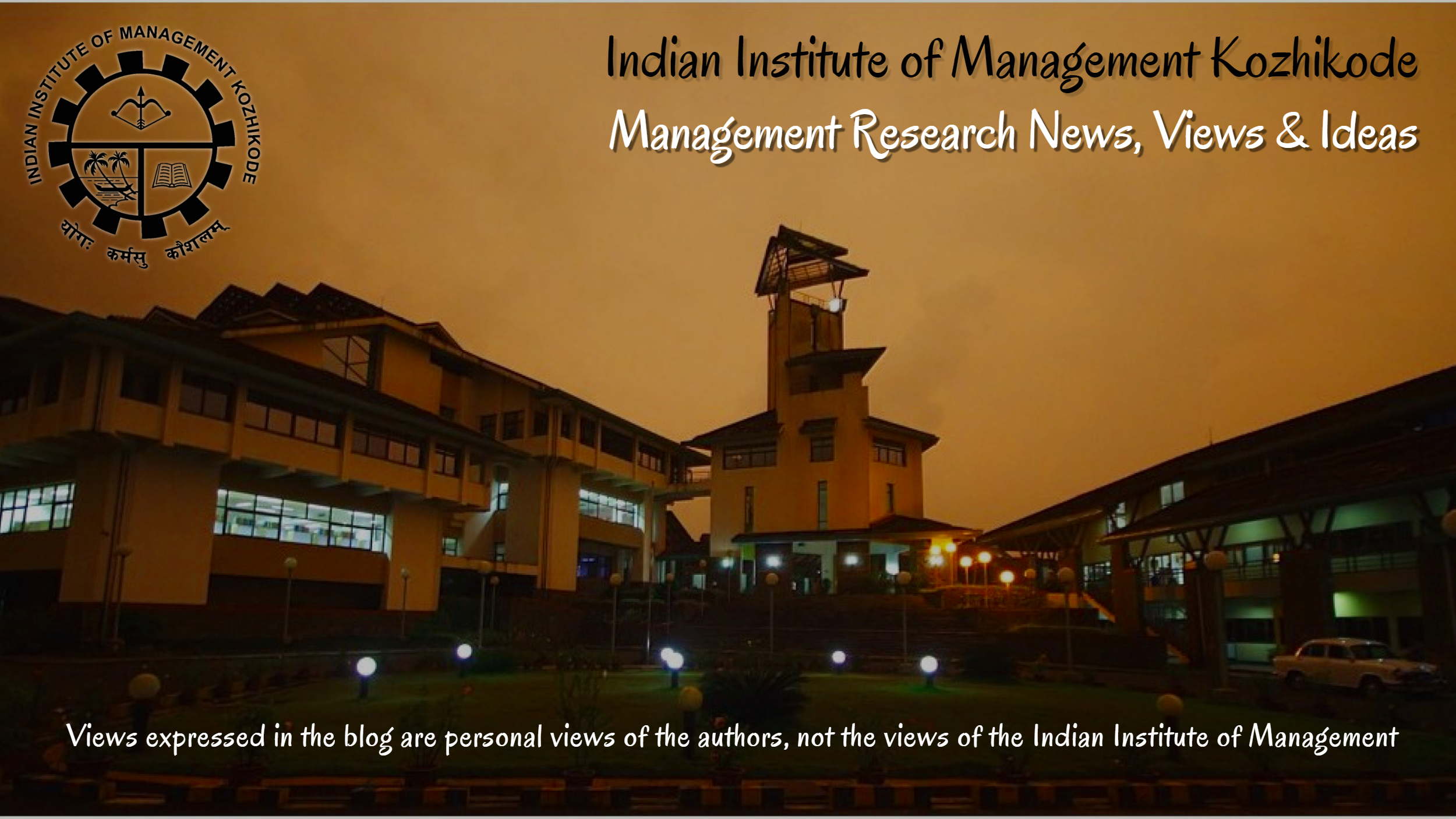

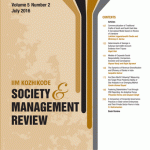

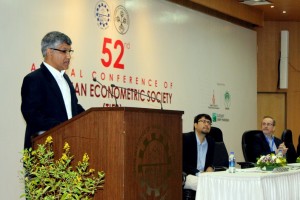

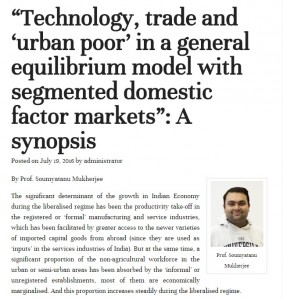

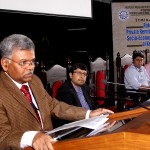
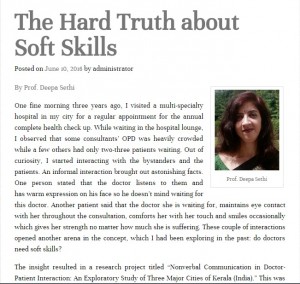
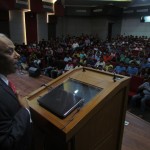





 Users Today : 469
Users Today : 469 Users Yesterday : 373
Users Yesterday : 373 This Month : 6470
This Month : 6470 This Year : 6470
This Year : 6470 Total Users : 564714
Total Users : 564714 Who's Online : 4
Who's Online : 4